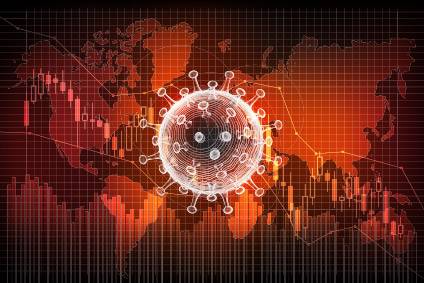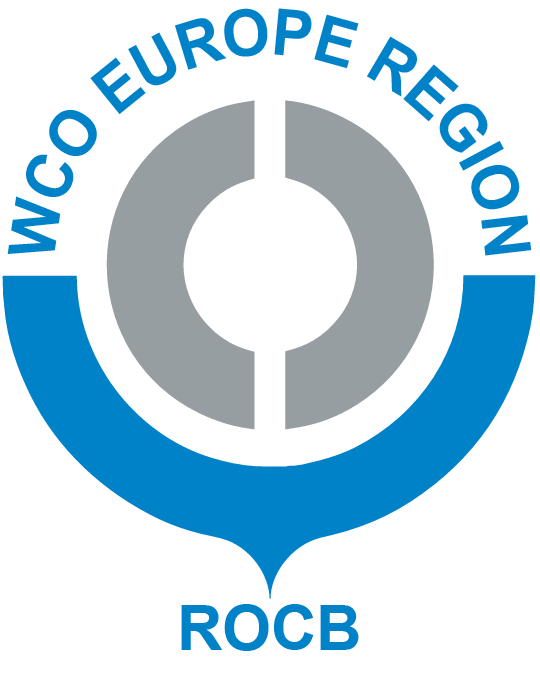As the Covid-19 is shaping the current conditions in the world, trade and growth prospects for near future take a downturn. This is evident from the forecasts made by international organizations.
The World Trade Organization estimates that the world merchandise trade will decrease in between 13% to 32% for 2020 depending on how bad or good the scenario will be.1 On the other hand, the World Trade Organization (WTO) considers that the effect of pandemic is harmful for developing countries in economy terms as financing trade has become much difficult these days. This brings additional hardship for these countries in attaining medical goods with limited resources, for instance.2
In the same vein, the International Monetary Fund estimates that the global economy will contract by 3% in 2020. For developed nations, economic growth will drop -6.1% in 2020 as the figure will be -1.1% for emerging market economies. Furthermore, these latter economies would likely see problems concerning health, demand shocks and financial conditions and low commodity prices.3The list could be prolonged.

However, the effects would not only be negative. As suggested by the UNCTAD, setting aside the downturn effects of the Covid-19, it is possible that it may bring an acceleration to digital solutions, tools and services as the struggle goes on for daily lives and working online. Digital solutions give way for other aspects such as education and shopping as well.4 This kind of a situation would necessarily reveal more velocity and high marginal utility.
Nonetheless, the negative effects of the pandemic should be contained as much as possible. One of the vital points that should be taken into consideration in that regard is international trade and its underlying guide trade policies.
The linkage in which the trade policy is centered is vital. Uncertainties with regard to trade policy is correlated with investors’ perceived risks. It affects stock returns as the expected risk increases. The negativity caused brings a downward trend for asset prices and stock market behavior.5 Evidently, global value chains are also correlated with the trade policy. In the same manner, the trade policy is becoming endogenous and therefore its effect is economically massive to global value chains.6 As the decisions are affected by the muddy picture of forward looking trade policies, not only financial dealings but also the corresponding economic exchanges and international trade become affected without fail.
Still, the multifaceted nature of pandemic effect continues to show itself. Interestingly enough, social connectedness plays a role within the context of trading countries. Removing the negative effect of asymmetrical information and placing trust, a high social connectedness between two trading nations means a higher level of trade flows.7 If we couple this relationship with increasing internet and social media usage by individuals, a higher trade volume might be expected between socially connected countries contrary to the downturn effects of the pandemic on trade.
There would be new working relationships and trade linkages in the context of the global economy after the pandemic. As the financial, social and policy aspects change, the shift in global exposure will be more visible. For example, it might be possible that the mode of transportation of goods would also change and give weight for cheaper and large scale transports. This may mean a shift from the conventional road transports and fast air cargos to railway and sea transports as well.
In any case, the effects of the pandemic most likely push more for the electronic means which has been already on an escalating path. The damage for economies will depend on the level of crossing point of protectionism and the consent for more open international financial and economic dealings. That is to say, the post pandemic era will bring its positive and negative impacts while bearing its own mixed characteristics.
| ROCB Europe Editorial |
References:
[1] COVID-19 pandemic and world trade: Some analytical notes, Barua, Suborna, University of Dhaka, Bangladesh
https://mpra.ub.uni-muenchen.de/99761/1/MPRA_paper_99761.pdf
[2] DDG Wolff: “The time now is for action rather than reflection”
https://www.wto.org/english/news_e/news20_e/ddgaw_08may20_e.htm
[3] Keynote Speech at Boao Forum for Asia Tao Zhang, Deputy Managing Director, IMF
https://www.imf.org/en/News/Articles/2020/05/08/sp050820-boao-key-note-speech
[4] UNCTAD chief: How to rebuild global economy and trade after COVID-19
https://unctad.org/en/pages/newsdetails.aspx?OriginalVersionID=2363
[5] Trade Policy Uncertainty and Stock Returns Esposito, Federico and Bianconi, Marcelo and Sammon, Marco
https://mpra.ub.uni-muenchen.de/99874/1/MPRA_paper_99874.pdf
[6] Global Value Chains and the Removal of Trade Protection Chad P. Bown, Aksel Erbahar, and Maurizio Zanardi
https://www.piie.com/system/files/documents/wp20-3.pdf
[7] International Trade and Social Connectedness Michael Bailey, Abhinav Gupta, Sebastian Hillenbrand, Theresa Kuchler, Robert J. Richmond, and Johannes Stroebel
https://www.nber.org/papers/w26960.pdf



